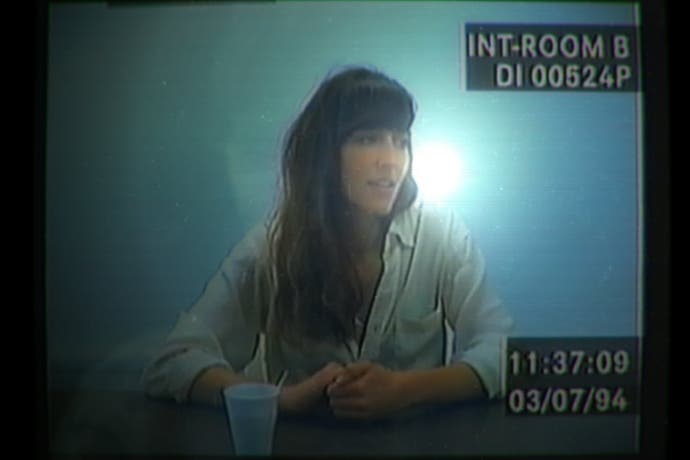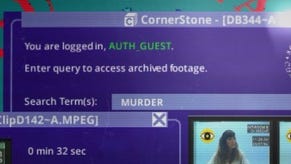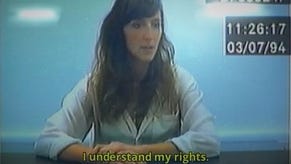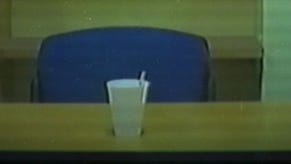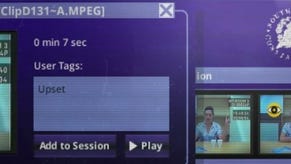Her Story is a "desktop thriller" True Detective fans can get behind
Move over LA Noire. Step back into the shadows Phoenix Wright. There's a new beat in town.
Team Bondi and Rockstar's 2011 detective game LA Noire promised much and achieved a great deal. But it was the reality of playing LA Noire after the hope it would be perhaps the first true detective game, after all those pretty words about fancy face technology and heart-pounding interrogations were said and done, that rubbed developer Sam Barlow up the wrong way.
"... obviously the reality of how that played out in LA Noire was not great," Barlow, who led design on the well-received Wii game Silent Hill: Shattered Memories while at Portsmouth-based developer Climax, tells me over Skype.
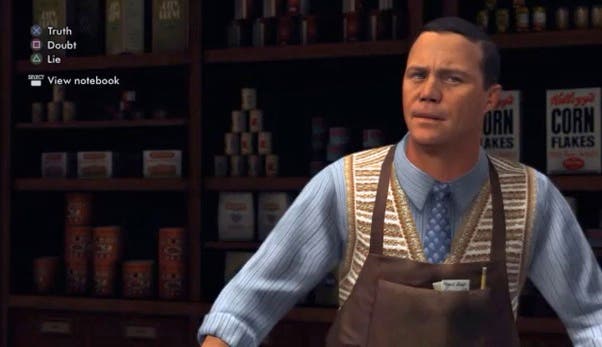
I liked LA Noire, although I couldn't bring myself to finish it. Bar the striking virtual recreation of 1940s Los Angeles, packed as it was with detail, flavour and atmosphere, Team Bondi's open world suffered from clunky combat, cumbersome driving and a crime scene investigation system that sparked more than a few humourous memes.
But it was the interrogation part of LA Noire that disappointed me most. And, it seems Barlow.
"My experience of LA Noire was, I would scratch my head about which of the three conversation options to choose, choose one, get a reaction I wasn't expecting, and then the character would run off or start shooting at me, and then I'd have to follow them," he says, and I laugh in agreement. I remember more than a few occasions having to chase down some crook who pegged it after I said the wrong thing. Not another runner!
"I never felt I was being the awesome detective who was having to read things and follow up threads of investigation," Barlow continues.
If we're on the hunt for a detective game that offers something closer to Barlow's ideal, we must swap the sunny beaches of Sydney for the neon-lit streets of Osaka. Japanese company Capcom's Phoenix Wright series, is, for Barlow, on the right track.
"Sometimes, the restricted interface they have in that game allows you to connect things someone said in ways that feel like you're being clever or unexpected," he says.
"And then they actually have genuinely interesting stories that have enough layers of misdirection and character motivation that make it an actual interesting detective story."
Of course, as with every game, Phoenix Wright has its problems. There are flaws hidden within the system that break the illusion. Phoenix Wright is, after all, just a video game, with systems and mechanics and gameplay.
Barlow calls it "rigidity". "The illusion is lost when you realise how carefully controlled that game is to make you feel like you've been clever," he says. "It's about freeing the player up to be clever, and have the confidence they're going to be able to be clever."
Enter Her Story, Barlow's take on the detective video game.
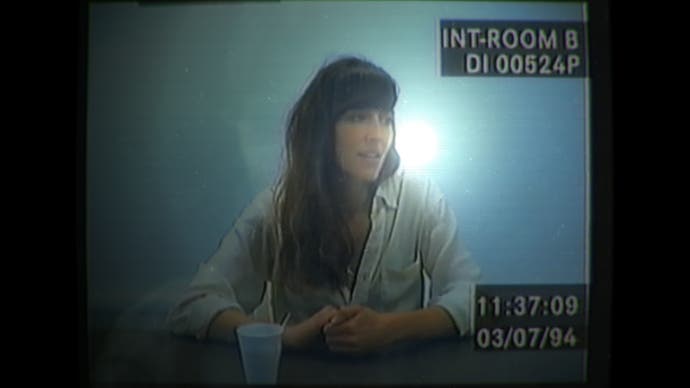
Her Story takes video footage of a police interrogation and makes a game out of searching through it. The player looks at a computer screen in the archives of a police station. This computer has been gathering dust in the corner of the station, the crime in question having gone unsolved. You search through the database, home to footage of seven interviews detectives conducted in 1994 with a British woman (played by actress Viva Seifert), about her missing husband. The footage has been chopped up into answers, her testimony analysed by speech recognition software, and her words attached to each clip. The story, and who you are, remains ambiguous - deliberately.
The only way to watch the clips of the interrogation is to search the database, and the only way to do that is to pop keywords into the search. You are, essentially, Googling through her testimony. Barlow provides an example: search for "apple", and you might get a clip showing her saying she had made an apple pie, or her computer was made by Apple. You'd get any clip during which the word apple was used, whatever the context.
The hook is that slowly, but surely, the player delves deeper into the footage and, along the way, discovers interesting things. You pick up on nouns particular to the story, proper nouns that can then be fed into your thread of investigation. Or, you can pull words out of the air and search for the abstract and the emotional.
"It feels a little bit like the old Ultima games," Barlow says, referencing Richard Garriott's role-playing epic, "where you had a conversation system in which you were typing in keywords to drive the conversation. It almost feels like a conversation you're having, but it's pulling stuff up in any context from this database."
Barlow considers Her Story a part of the "desktop thriller" genre, lining it up beside the likes of The Fourth Protocol, The Vera Cruz Affair, Floor 13, and Portal. No, not that Portal. This Portal. The modern day comparison is perhaps to Lucas Pope's wonderful Papers, Please, a game in which the player looks down at travel documents that sit on a desk.
"It's very simple," Barlow says of Her Story. "It's a very pure game. Almost minimalist."
Her Story counters the "rigidity" of Phoenix Wright with a clever, non-linear structure that, despite including an endgame of some description (although Barlow won't say what it involves), messes with your typical video game chronology.
Your first search may, for example, return a clip from the woman's final interview with police. This would contain revelations about the crime and how it happened, but without the context of a thorough investigation, you wouldn't understand their significance. "That would break a Phoenix Wright game," Barlow enthuses.
If you're thinking Her Story isn't heavy on the "gameplay", as many of us understand the term, you'd be right. It has much less overt gameplay than the likes of Phoenix Wright or even the interrogations from LA Noire. After all, all the player does is search for video clips then watch them.
But, Barlow hopes, the player will end up feeling like a detective in a way those other video games do not. "A lot of detective video games have lots of gamey stuff dressed with the thematics of a detective or a police procedural," he says, "but rarely do you feel like you're doing that stuff and in the mindset of a detective."
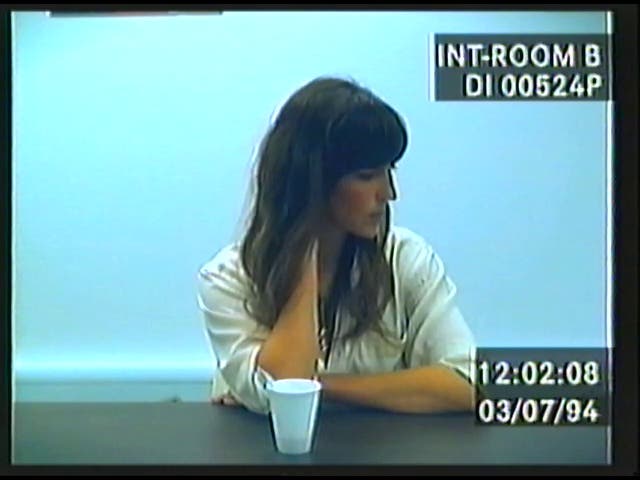
The best modern crime dramas are the best psychological thrillers. I love True Detective because I can't take my eyes off of Matthew McConaughey's brilliant but disturbed detective Rustin "Rust" Cohle. I love Fortitude because Richard Dormer's Sheriff Dan Anderssen is as menacing as he is determined. I care about these wonderful characters because they are wonderful characters.
Her Story riffs off of the same, character-driven template. But it does so with just one character, presented to the player with a visual nod to real world crime stars such as Amanda Knox, Jodi Arias and Oscar Pistorius. These gargantuan and global crime dramas that inspire such depressing armchair detective work; we watch the footage from half the world away and judge. Did they do it? They look like they did it. They must have.
Sam Barlow wants to give the power back to the person on the other side of the screen, the person under the microscope, the person with the light shining in their eyes. In Her Story, you never hear any of the questions being asked of the woman (the questions are held on a separate server). So, you must infer what's being asked from her answers. Truly, this is Her Story.
I'm excited for Her Story not because LA Noire's interrogations were a laugh, or because Phoenix Wright doesn't quite cut it. I'm excited for Her Story because it's different and it looks likely to challenge me in a way video games haven't for quite some time. And that is, at the end of the day, the best kind of crime drama.
Her Story is due out during the first half of 2015 for PC, Mac, iPad and iPhone. The Steam Greenlight page is up and running now.
